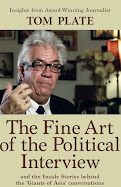Los Angeles - There is not the slightest doubt that the emotional
mentality of the West Coast versus the East Coast of the U.S. on a vital
East-West issue such as the China relationship is different. The reason for
bringing this up has to do with our currently besieged American president, his
beloved Mar-a-Lago weekend retreats, and China. Getting and keeping our volatile Trump in the right frame of
mind – relaxed and open to reason - is nothing less than in the national and
global interest.
Let us start with the obvious fact that the West Coast is
different from the East Coast. The latter represents fraying, unhappy cities propped
up against the washed-up Atlantic Ocean, seaway to the past (Europe). By
contrast, consider West Coast cities - Santa Barbara, San Francisco and San
Diego, not to mention Seattle, Vancouver and Los Angeles … sprightly and pleasant…
all set against the Pacific Ocean, super sea-lane to the future (Asia).
Geography may not be destiny but it sets a tone. One is outlook. Ours is
generally sunny; the East Coast’s is generally gloomy. We here tend to believe,
they tend to despair. Consider the
weather factor on the human psyche: It’s
happy-go-lucky Hawaiians versus Kierkgaardian Scandanavians.
Not surprisingly, there are more Asians here than anywhere else outside
of Asia. More and more, from all over Asia – and nowadays especially from the
mainland - they come and settle here. In Southern California there are more people
of Korean heritage than anywhere outside of Seoul. There are so many Vietnamese-Americans that a freeway exit-sign
on our monster-405 reads ‘Little Saigon’. Asian student musicians overwhelm our
high school orchestras. There are so many Asian college students around here
that one of our universities is sometimes dubbed the ‘University of Caucasians
Lost among Asians’ and another the ‘University
of Spoiled Chinese’ (which before that was known locally – and affectionately
- as ‘University of Spoiled Children’!).
In Los Angeles city, Caucasians
now officially number a minority.
There is much optimism in the air, from the ongoing Silicon Valley to
up-and-coming Silicon Beach, just south of Los Angeles (and nearby my dynamic
Loyola Marymount University). New-age non-profits – especially the Pacific Council on International Policy (a
think tank) and the Pacific Century Institute (a good-works tank) – add fresh
wind to old policy storms. The effect of this demography in our geography is to
nurture and sustain a politics of possibility regarding China and Asia, rather
than a politics of impossibility.
Perhaps this summary of West versus East coasts is somewhat hyped – but
not out of all proportion! It is not the same in Washington. And this brings us
to the topic of President Donald Trump and his merry Mar-a-Lago resort and
retreat. The East Coast news media in New York and Washington has been
merciless about the president’s regular weekend escapes to Florida. Why can't
he stay put in Washington? Why must he always escape to Mar-a-Lago? Consider the mounting costs! The
security issues! And on and on and on.
Let me say this about Washington, understating it a little: It is a horrible
place - maybe the meanest political town in a First World country, fully in the
feral class of a Seoul or a Paris or other notably mean-spirited capital cities.
Many from the West Coast when in Washington on business stay no longer than
they have to. Trump is just like this and, from his perspective, you see,
Mar-a-Lago is his West Coast paradise. Florida is not on the West Coast, of
course, but it has in the air some of our optimistic attributes.
That
Trump in fact does escape to it every possible weekend seems to me a sign less
of indulgence (at taxpayer expense) than a presidential psychological necessity
(to the people’s possible benefit). Perhaps future historians will conclude he
did much of his best work there. One notes that the February round of ‘fairway
diplomacy’ at a Trump golf course near the Mar-a-Lago estate, where Abe and his
wife stayed, followed the lightening-fast pre-inauguration summit in New York
with Japan’s Prime Minister Shinto Abe. Deals were there sealed. Perhaps at
least as successful was the summit with China’s President Xi Jinping. Between granddaughter Arabella and First
Lady Peng Liyuan, the event was a getting-to-know-you blockbuster.
Let’s face it: our 45th U.S. president, for
all his macho Mar-a-Lago, is dramatically, scarily inexperienced. Yes, Trump
does learn things in Washington - such as why Congress so far has not been more
productive under a Republican president than the prior Democrat. So, if I were
Trump, I would probably want to get out of that town most weekends, too. In what venue other than his Florida
millionaire’s crib would this impetuous real estate mogul be in mellow enough
to politely absorb a pointed lecture on Chinese-Korean history from China’s
leader? Yet the unschooled Trump seems to come away from these encounters with
Asian leaders with a newly found sense that foreign issues are not remotely amendable
to solution via campaign slogans, or to idiotic advice from right-wing nut
jobs.
In
serious people like Abe and Xi, Trump more than meets his equal. These tough-minded,
well-informed politicians are emblematic of leaders that can help Trump and the
rest of us chart our future, if only we can work together peacefully. I only
hope the leaders of strategically vital Indonesia and highly successful
Singapore will soon check in for a chat, too – especially if it’s in
Mar-a-Lago, not Washington.
Columnist and Loyola Marymount Professor
Tom Plate, Asia Media International’s founder and LMU’s Distinguished Scholar of
Asian and Pacific Studies, is vice president of the Pacific Century Institute
and the author of the 'Giants of Asia' quartet. His next book will be on China
and the U.S.


